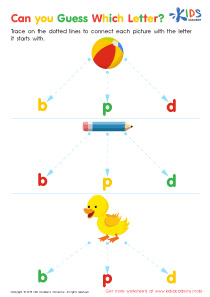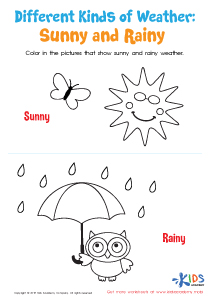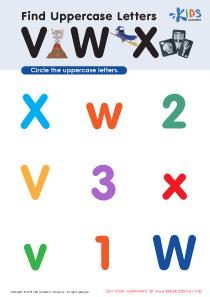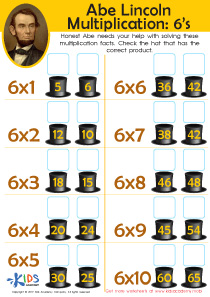One More and One Less Quizzes for 4-Year-Olds
2 results
2 filtered results
Clear all filters2 filtered results
-
From - To
Introducing our engaging Interactive Assessment Quizzes designed specifically for 4-Year-Olds, focusing on the fundamental concept of "One More and One Less." These quizzes are crafted to not only evaluate but also enhance your child's understanding of basic addition and subtraction in a fun, interactive way. Each quiz provides immediate feedback, encouraging young learners to grasp these essential mathematical principles confidently. Whether it's identifying one more than a given number or determining one less, our quizzes make learning this vital skill enjoyable and rewarding. Perfect for both home and classroom settings, our quizzes are the go-to resource for nurturing your 4-year-old's numerical skills.
In the ever-evolving landscape of early childhood education, interactive learning tools have become instrumental in laying a strong foundation for young learners. Among these, One More and One Less quizzes for 4-Year-Olds stand out as a particularly effective means of introducing basic mathematical concepts in a fun and engaging way. These interactive quizzes are designed not only to entertain but also to educate, making them an invaluable resource in the academic journey of preschoolers.
Understanding the concept of One More and One Less is fundamental in developing a child's numerical skills. This seemingly simple idea is the cornerstone upon which more complex mathematical operations are built. By engaging with these quizzes, 4-year-olds begin to grasp the basics of addition and subtraction in an intuitive manner, paving the way for a smoother transition to more advanced mathematics in later years.
The interactive nature of these quizzes significantly enhances the learning experience for young children. Unlike traditional classroom settings, which may not fully capture the attention of 4-year-olds, these quizzes are designed with the young learner in mind. They employ vibrant colors, engaging sounds, and interactive elements that keep children entertained while they learn. This approach to learning not only makes the educational process more enjoyable but also increases retention rates, ensuring that the concepts of One More and One Less are deeply embedded in the child's memory.
Furthermore, the adaptability of these quizzes is another feature that makes them particularly beneficial for 4-year-olds. Children at this age can vary significantly in their learning pace and style. The interactive quizzes can be adjusted to suit the individual needs of each child, allowing them to progress at their own pace. This personalized approach to learning ensures that every child can engage with the material in a way that best suits their developmental stage, making the learning process more effective and enjoyable.
The role of feedback in learning cannot be overstated, and this is another area where One More and One Less quizzes for 4-Year-Olds excel. Immediate feedback is provided as children interact with the quizzes, allowing them to understand the consequences of their choices right away. This instant feedback loop encourages self-correction and experimentation, fostering a growth mindset where mistakes are seen as opportunities for learning rather than failures.
In addition to developing mathematical skills, these quizzes also contribute to the enhancement of other cognitive abilities. Problem-solving, critical thinking, and decision-making skills are all exercised as children navigate through the quizzes. Furthermore, the interactive elements of the quizzes help in improving hand-eye coordination and fine motor skills, demonstrating the holistic benefits of incorporating such learning tools into the educational curriculum of 4-year-olds.
In conclusion, One More and One Less quizzes for 4-Year-Olds are an invaluable asset in the early stages of a child's educational journey. By combining interactive fun with fundamental learning, they not only lay the groundwork for future academic success but also foster a lifelong love for learning. As education continues to evolve, the integration of such innovative tools will undoubtedly play a pivotal role in shaping effective and enjoyable learning experiences for young minds.








.jpg)

